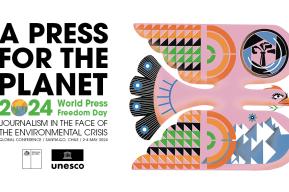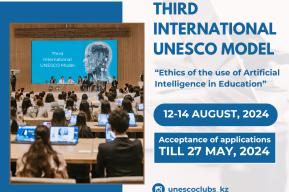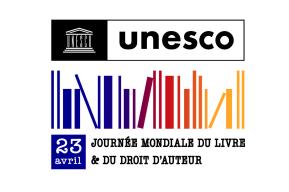Article
Civil Servant 2.0: Spotlighting digital competencies for policymakers at WSIS 2022

The UN Broadband Commission’s Working Group on AI Capacity Building is developing a Digital Competency Framework for Civil Servants through a series of global and multi-stakeholder consultations.
On 25 April 2022, UNESCO joined hands with the Open for Knowledge Foundation, ILDA, Paradigm Initiative and Polylat to kick off the global consultations, beginning with a World Summit on the Information Society (WSIS) workshop to gather multistakeholder feedback and shape the Digital Competency Framework consultation process.
“We want to set up an inclusive and comprehensive process to understand the future needs of the public sector,” said Renata Avila, CEO of the Open Knowledge Foundation.
Setting the Context
The competency framework builds upon existing research and public sector initiatives by the different organizations. For example, UNESCO had previously identified gaps in AI capacities within the public sector with the AI Needs Assessment Africa, said Prateek Sibal, Programme Specialist, UNESCO.
Out of 32 countries surveyed, 80% requested policy advice for the development of aspects of AI policy concerning education, sciences, culture and communication and information.
Similarly, Fabrizio Scrollini, executive director of the Open Data Latin American Initiative (ILDA), shared some key training needs that have already surfaced in ILDA’s work, such as the need for civil servants to understand what digital governance means and retaining talent to implement AI across public sectors. “It’s not just about setting up a chatbot but understanding how algorithms impact the delivery and quality of public services,” he said.
Specific to Africa, Gbenga Sesan, Executive Director of the Paradigm Initiative, observed that public officials may have contradictory perceptions of digital platforms. For instance, the discourse around digital platforms with their different challenges is giving rise to a lack of trust and understanding of digital rights.
Public officials must understand that the attempt to use digital technologies to improve the lives of citizens must go hand-in-hand with respect for digital rights.
What competencies will the civil servants of the future need?
While digital skills and literacy are important, the discussion highlighted other gaps that must be addressed. Firstly, there is currently no unifying framework across the public sector, private sector and civil society, said Fabrizio. While the technical competencies that civil servants need are similar to those required in the private sector, the digital governance competencies are something else entirely, he added.
There is a need for a shared language and understanding of what AI for the public good is.
Secondly, public services face difficulties in scaling up digital solutions, due to infrastructure gaps, said Renata. “Sometimes, the solutions from the private sector are not ready for the public sector. We need to design technology for the public sector,” she said.
Finally, according to Gbenga, there is a cooperation gap within governments. “One of the things we have learnt is to never assume that the government is a singular entity, instead we should encourage the agencies to talk to each other and form a chain of engagement,” he said. Additionally, he pointed out the need to engage existing institutions and foster collaborations instead of reinventing the wheel.
This is in line with UNESCO’s multistakeholder approach as part of the human Rights, Openness, inclusive Access and Multistakeholder participation- and gender equality-based (ROAM-X) framework.
This workshop is the first of a series of global and multi-stakeholder consultations to design the Digital Transformation and AI Competency Framework for Civil Servants. As an open resource, the Competency Framework will be context-sensitive and adaptable for use to support capacity building for civil services across ICT Ministries and Digital Units in governments.








